Make Your Own Tactile Summer Memory Book
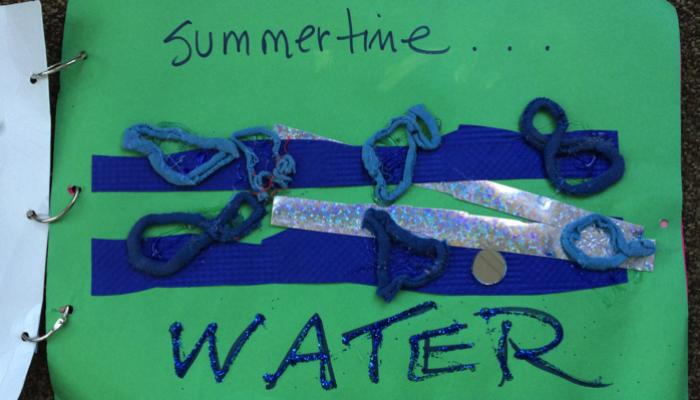
Tactile memory books are a fun way to incorporate language development, social skills and good old fashioned arts and crafts all into one activity.
And tactile memory books about summer vacation are an easy way for your visually impaired child, verbal or nonverbal, to share with his class and teachers about his holiday when he gets back to school in the fall.
Before getting started, you might want to check out this site with ideas on how to make your own tactile books. Mostly they encourage the use of differing textures, high-contrast colors and non-cluttered pages.
So start with a simple theme, like “My Summer Vacation,” then think of a few (maybe five) things you did this summer that will really stand out to your child. If you’re planning ahead, it’s fun to collect objects while you’re on vacation that can be used as materials for your pages later.
For example, Ivan had fun visting the new bridge over the pond at Perkins this summer and collected sticks and pieces of grass around the pond. He then used those sticks to create a tactile version of the pond for his summer memory book:
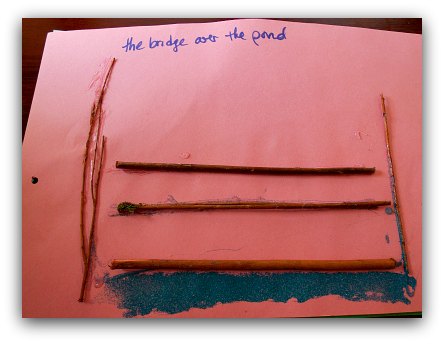
What You’ll Need to Make Your Memory Book:
- three key rings
- large construction paper
- puffy paint
- braille labeler
- assorted craft materials, like foam stickers, yarn, pipe cleaners, etc
- glue
Making Your Tactile Memory Book
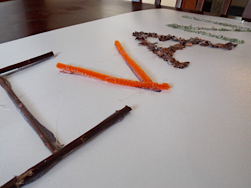 Sit down with your child and talk about what you did over the summer break. Think about what was really fun or momentous. Pick out four or five big pieces of construction paper and talk about how you might “draw” those experiences using the craft materials you have on hand. A big part of creating a memory book is to talk about the memories while you make it. Even if your child is nonverbal, this is still an excellent opportunity to talk about time (past and present), family members and memories.
Sit down with your child and talk about what you did over the summer break. Think about what was really fun or momentous. Pick out four or five big pieces of construction paper and talk about how you might “draw” those experiences using the craft materials you have on hand. A big part of creating a memory book is to talk about the memories while you make it. Even if your child is nonverbal, this is still an excellent opportunity to talk about time (past and present), family members and memories.- A good first page might be to just draw your child’s name using tactile objects. It can be fun to use summer objects that you’ve collected yourself. Go to the park or in your yard and find some twigs, pull up some grass or shred old leaves. Did you go to the beach over the break? Why not use sand to make one of your letters!
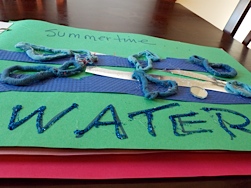
- Keep your pages limited and simple. Choose high contrasting colors for your paper and your materials and stick to one idea for each page.
- Finish each page with a title written in print and braille. It can also be fun to write the print words with puffy paint so they are tactile, too!
- To turn your pages into a real book, punch holes in your pages and hold the whole thing together with key rings. You can read your book together and talk about how much fun you had making it!
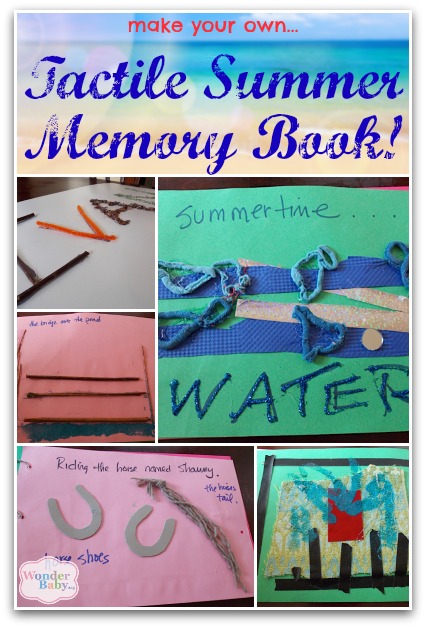
Related Posts

Holiday Crafts and Ideas
Should Parents Lie to Their Kids About Santa Claus?
Should parents lie about Santa? Find out how to balance trust, magic, and holiday traditions right here!

Holiday Crafts and Ideas, Special Needs
5 Tips for a Peaceful Thanksgiving with Your Child with Disabilities
Thanksgiving can be a joyful yet overwhelming holiday, especially for families with children who have sensory, motor, or dietary needs.
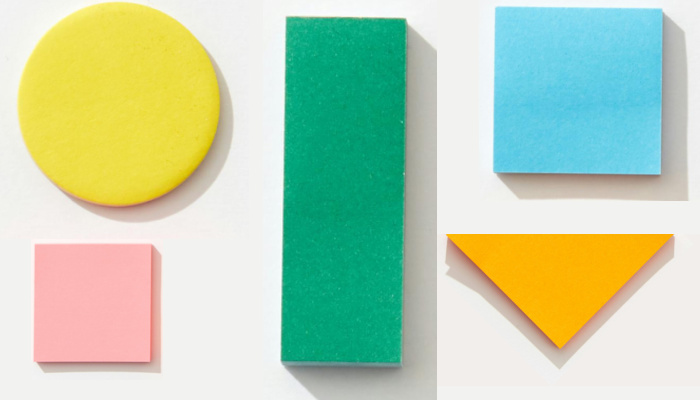
Tactile Arts and Crafts, Visual Impairment
Using Origami to Teach Blind and Low-Vision Students Basic Shapes
If, like me, you have wondered why it is important for young students to learn about shapes, here are just a few reasons. Teaching shapes in early education provides children...